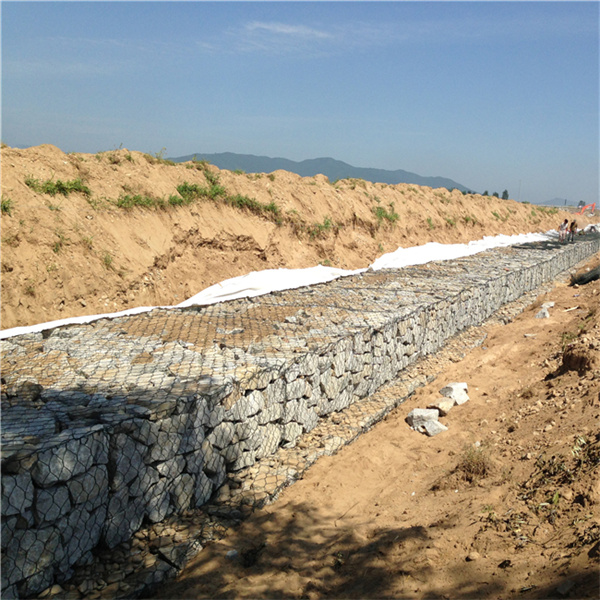Ago . 17, 2024 07:50 Back to list
Chain Link Gabion Manufacturers and Their Impact on Modern Construction Solutions
Chain Link Gabion Factories An Overview
Chain link gabions, often referred to as wire mesh baskets, are a popular solution for various landscaping and civil engineering projects. These structures are made from interconnected wire mesh frames filled with stones or soil, offering both structural stability and aesthetic appeal. As the demand for sustainable and cost-effective solutions in construction continues to rise, chain link gabion factories play a crucial role in meeting these needs.
The Functionality of Chain Link Gabions
Chain link gabions are typically used for erosion control, soil stabilization, and even decorative purposes in landscaping. Their design allows water to pass through, reducing the risk of flooding and water damage in vulnerable areas. They can be used to build retaining walls, prevent landslides, or create barriers across rivers and streams. Moreover, they are often employed in military and defense applications due to their strength and versatility.
Production Process of Chain Link Gabions
The production of chain link gabions involves several key steps. First, high-quality wire is selected and processed to ensure durability and resistance to corrosion. The wire is then woven into a mesh format, creating a framework that will hold the stones or soil. The factory adheres to strict quality control measures, ensuring that each gabion is uniformly produced for consistency and reliability.
Once the mesh is completed, it is cut and assembled into individual baskets. The factory may customize the dimensions of each gabion to suit specific project requirements. After assembly, the baskets are usually galvanized or coated with a polymer for additional protection against rust and environmental factors. Finally, they are packed and prepared for shipment.
Benefits of Using Chain Link Gabions
chain link gabion factories

One of the primary advantages of chain link gabions is their environmentally friendly nature. The use of natural materials like stones or soil minimizes the ecological footprint. Additionally, they can be easily integrated into the landscape, often blending well with the surrounding environment. Their porous structure allows for vegetation to grow, further enhancing their function in promoting local biodiversity.
Cost-effectiveness is another significant benefit. Compared to traditional concrete or masonry solutions, chain link gabions are generally more affordable and quicker to install. They require less skilled labor, which further reduces project costs. The flexibility in design also allows for creative applications, providing architects and engineers with a versatile tool for various projects.
The Role of Chain Link Gabion Factories in the Market
As urbanization continues to increase, there is a growing demand for effective solutions to manage environmental challenges. Chain link gabion factories are rising to meet this demand by producing high-quality products that cater to a wide range of applications. These factories not only contribute to the construction and landscaping sectors but also play a vital role in promoting sustainable development.
Moreover, the evolution of technology in manufacturing processes allows these factories to enhance productivity while maintaining quality standards. Continuous innovation—such as the development of eco-friendly coatings or more efficient manufacturing techniques—helps to improve the performance and durability of the final products.
Conclusion
In conclusion, chain link gabion factories are pivotal in providing effective, sustainable solutions for a variety of construction and landscaping needs. Their ability to produce durable, cost-effective, and environmentally-friendly products makes them indispensable in addressing modern engineering challenges. As the demand for sustainable designs continues to grow, the role of these factories will likely expand, leading to new innovations and applications in the construction industry.
-
Why PVC Coated Gabion Mattress Is the Best Solution for Long-Term Erosion Control
NewsMay.23,2025
-
Gabion Wire Mesh: The Reinforced Solution for Modern Construction and Landscape Design
NewsMay.23,2025
-
Gabion Wall: The Flexible, Seismic-Resistant Solution for Modern Landscaping and Construction
NewsMay.23,2025
-
Gabion Wall Solutions: The Durable, Decorative, and Affordable Choice for Every Landscape
NewsMay.23,2025
-
Gabion Basket: The Durable and Flexible Alternative to Traditional Retaining Walls
NewsMay.23,2025
-
Gabion Basket: The Proven Solution for Slope Stability and Flood Control
NewsMay.23,2025
-
Versatility of Chain Link Fence Gabion
NewsMay.13,2025






